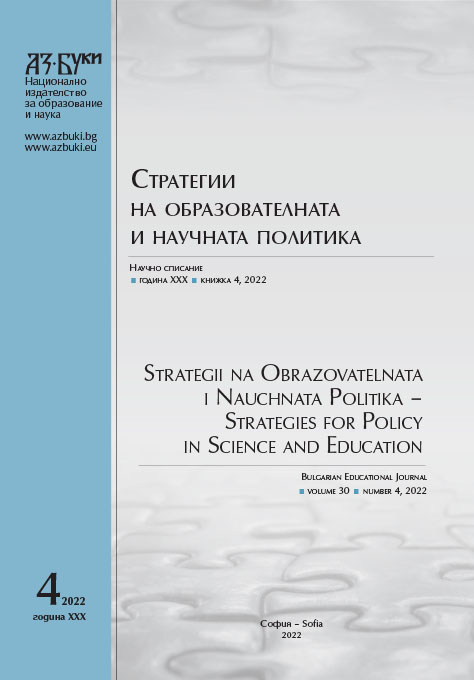
We kindly inform you that, as long as the subject affiliation of our 300.000+ articles is in progress, you might get unsufficient or no results on your third level or second level search. In this case, please broaden your search criteria.

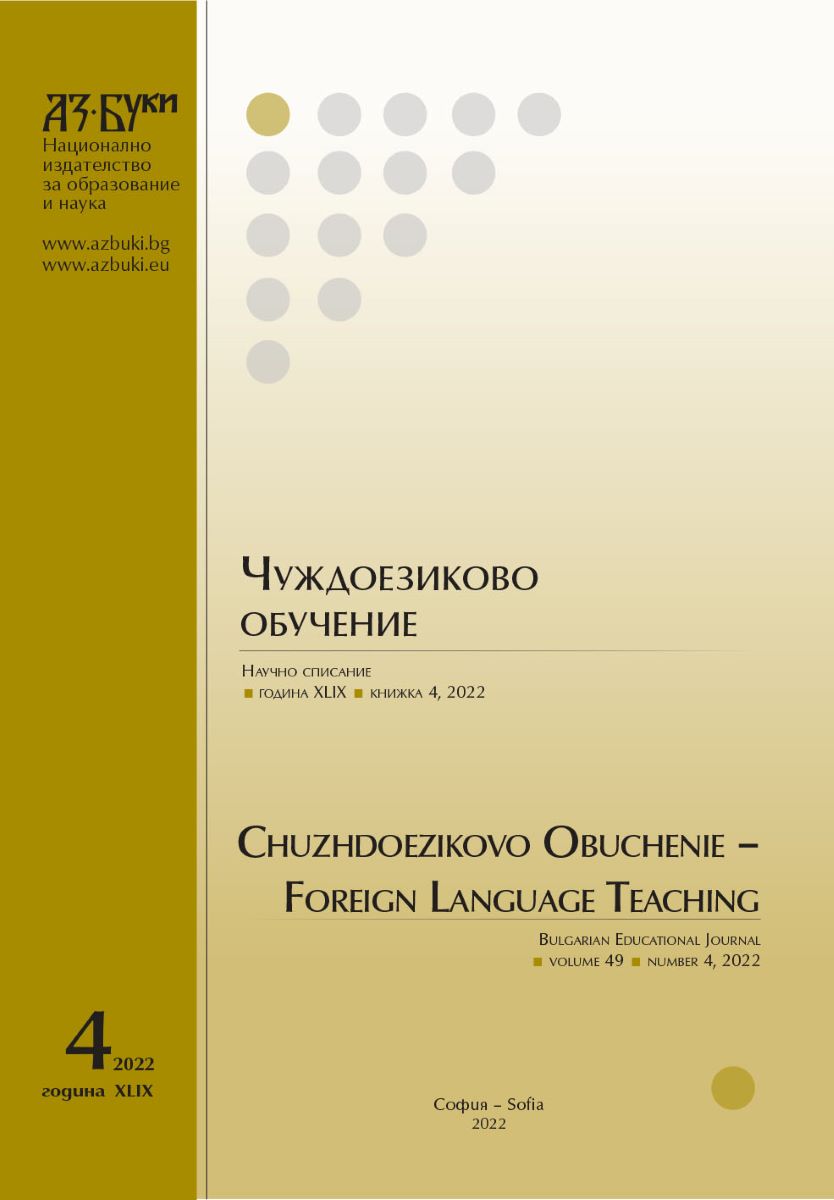
В статията се представят в съпоставителен план възможностите за образуване на инхоативни глаголи от предикатите за състояние в българския и руския език. Разглежданите словообразувателни модели са застъпени в много по-висока степен в българския език, но и в двата езика аспектологичните характеристики налагат съществени ограничения по отношение на съчетаемостта на глагола с префикс с начинателно значение. В българския език възможността за образуване на инхоативи от даден предикат може да послужи като надежден диагностичен тест за принадлежността му към дадена онтологична категория в рамките на семантичната типология на предикатите.
More...
This paper outlines the most productive ways of word formation in the English language, focusing on the derivational field of the lexeme “wind”. Derivaties are also clustered according to different thematic groups, connotative meanings, American English usage, constituents of compound words and similarity in meaning. Special attention is paid to differences in theories and approaches to word-formation processes, to using the terms and inconsistencies in spelling of some of the derivatives according to different dictionaries and grammars.
More...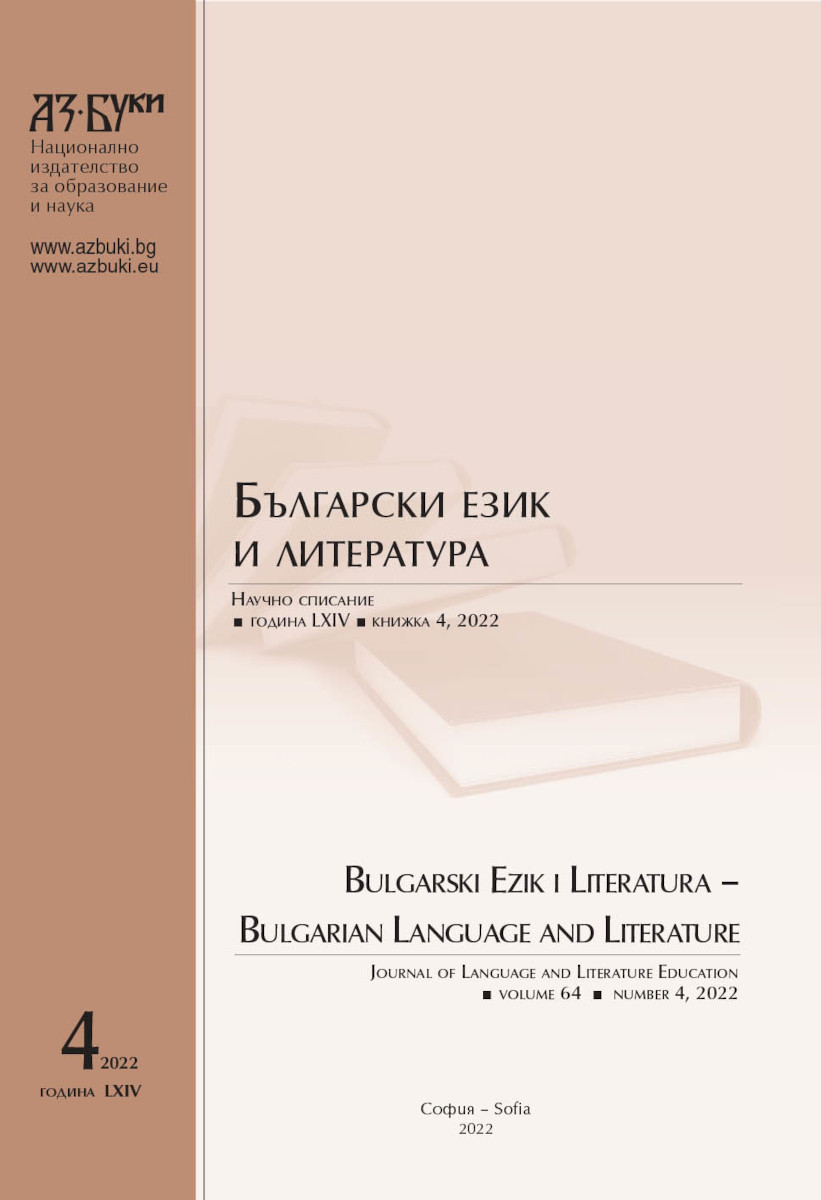
The article is devoted to the work of the Bulgarian writer of the XXth century, Angel Karaliychev. In the second half of the XXth century, his most famous fairy tales and stories for children were translated into Russian, including the collection “Bulgarian Folk Talesˮ in two volumes. In the Soviet Union, Karaliychev's fairy tales were included in collections of fairy tales of Slavic peoples and represented Bulgarian folklore in collections of fairy tales of the peoplesof the world published in Russian. Despite the fact that the last book edition of Karaliychev's fairy tales in Russian appeared in the 1980s, his works continue their life in the new century in electronic format, on the Internet. Karaliychev's fairytales, addressed to children 4 – 10 years old, tell about eternal values in a language understandable for children, they also introduce to children and adults the realities of Bulgarian life, the heroes of Bulgarian folk tales, expanding the horizons of the Russian reader.
More...![«[Слово] надгробное... Kипріану...» by Gregory Tsamblak: Linguistic and Stylistic Features of the Work](/api/image/getissuecoverimage?id=picture_2022_69771.jpg)
The article analyzes the linguistic and stylistic features of the work entitled «[Слово] надгробное... Кипріану...» by Gregory Tsamblak, proclaimed by the metropolitan in Kyiv around 1409. The text is characterized by a high level of verbal and artistic skill. The author uses traditional means of depiction, acts as an innovator, applying a whole system of linguistic means: units of the lexical level, artistic tropes (figures of speech): linguistic repetitions, antonyms, epithets, metaphors, comparisons. Through the use of structurally similar words and typical syntactic constructions, the artist achieves the creation of a certain architectonics of the sacred text and its rhythmization. They help to emphasize the closeness of Gregory Tsamblak to his spiritual father Cyprian, to exalt his activities, and to express the depth of the loss of his mentor. The distinctive signs of the ‘word-weaving’ style, revealed in the work, testify not only to its affiliation to the high style of religious writing, but also increased attention to the inner world of man, which corresponds to the ideas of hesychasm of that time.
More...
The article focuses on the process of mixing languages (translanguaging) in the public inscriptions of Veliko Turnovo. There are two main principles that presuppose the occurrence of mixed inscriptions and that structure the local landscape – the presentation-of-self principle and the good reasons principle. In this context translanguaged writing reflects the deliberate manipulation of the features of the two languages – English (in its variety as a global language) and Bulgarian (the local code) to produce hybrid language forms that evoke different connotations. The ethnographic analysis is carried out within the theoretical framework of Linguistic Landscaping Studies with a special focus on the indexability of the material world, code preference and feature analysis.
More...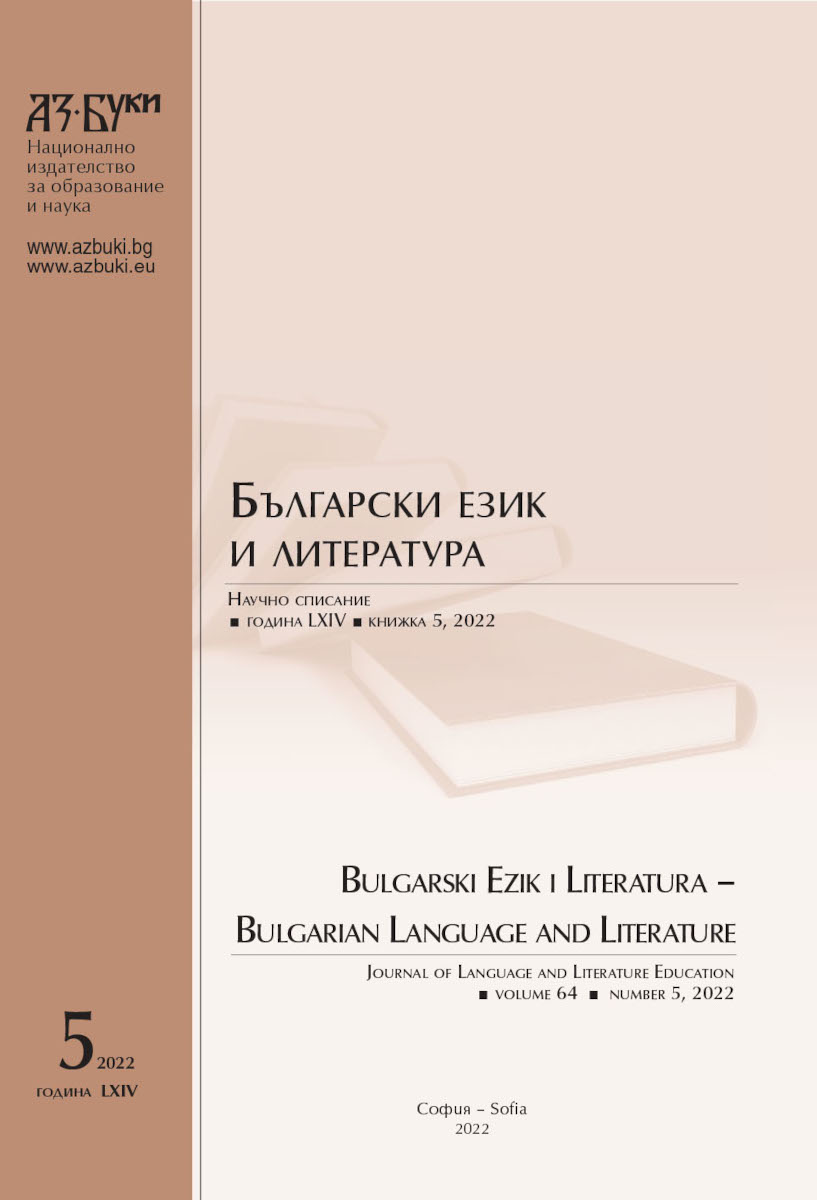
The present study is the first one that aims to present a comparative analysis of the bills for the use of the Bulgarian language introduced in the Parliament since 2004. The conclusion reached as a result of the comparative analysis is that the texts of the bills have quite a lot in common rather than having differences in terms of both the main ideological positions and the weak points that prevented the adoption of such a law over the years. In addition to this, the conclusions impose the idea that a qualitatively new approach is needed in the drafting of the normative act– the law on the Bulgarian language should regulate a unified state language policy to protect the language as the basis of national identity and thus to encourage the development of education, science and culture in the Republic of Bulgaria.
More...
The subjunctive mood has been widely discussed from the perspective its selection in complements of volitional, directive and emotive-factive predicates (Picallo 1984, Raposo 1985, Ambar 1988, a.o.). Subjunctive questions and other type of subjunctive main clauses, on the other hand, have not been subject to much systematic research. Some works (Ambar 2016, Giannakidou 2016) suggest that, in main clauses, the selection of the subjunctive mood codifies the expression of the speaker’s evaluations. In line with this view, we discuss the syntactic expression of the Bulgarian dali-questions which do not consist in true requests for information but rather display a flavour of wondering encoded in the occurrence of dali and its morphological make up combining the subjunctive particle da and the interrogative particle li. Considering the properties of the Balkan subjunctive particles, we discuss the syntactic expression of Bulgarian dali-questions building on previous analyses of Bulgarian yes-no questions (Dimitrova 2020).
More...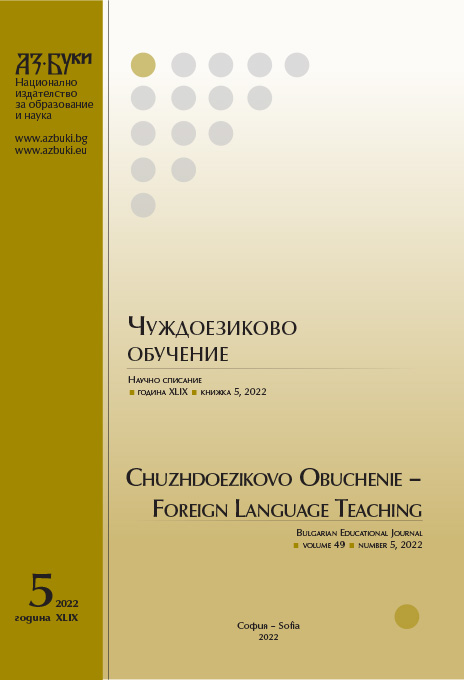
The article examines the interaction of the Balkan peoples in the composition of multinational empires. Widespread multilingualism and frequent switching from one language to another eventually led to the formation of the Balkan Linguistic Union. With the rise of national consciousness in the 19th century and the change of political configuration, the process of convergence of the Balkan languages was interrupted. Moreover, individual regional dialects of some languages, once united by a common name, took on a life of their own. But there is also a reverse process, languages artificially separated for political reasons are regaining their former integrity.
More...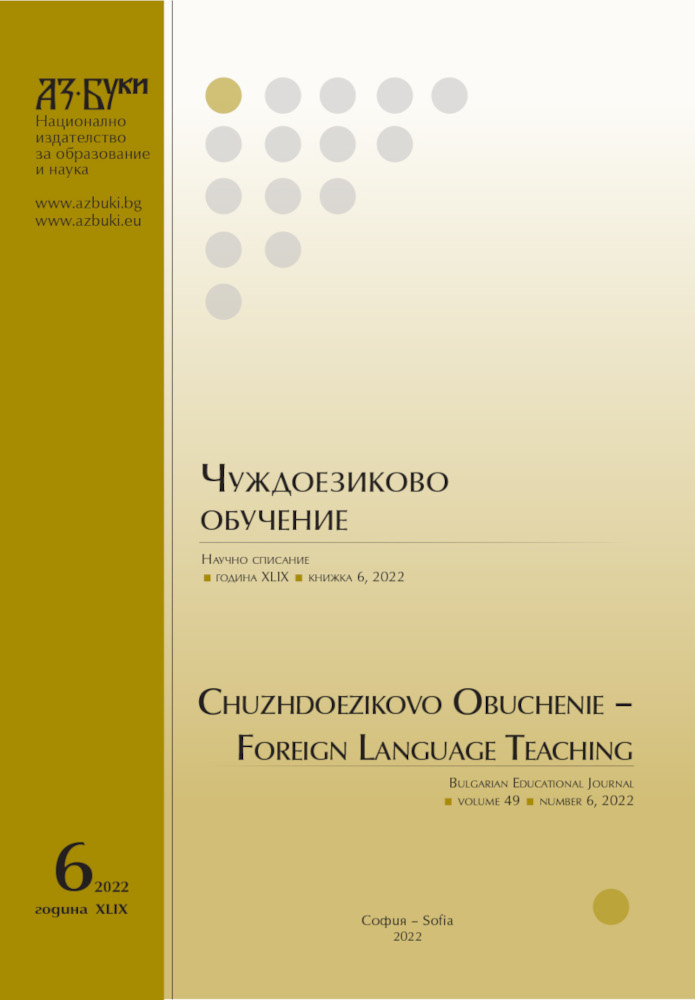
The article examines the breakdown of Roman Jakobson on the autonomy of linguistics and its relations with the other human sciences. Yakobson picks up and develops Sapir’s idea that the modern linguist cannot confine himself to his traditional field. He interprets autonomy and integration as two mutualy complementary concepts.
More...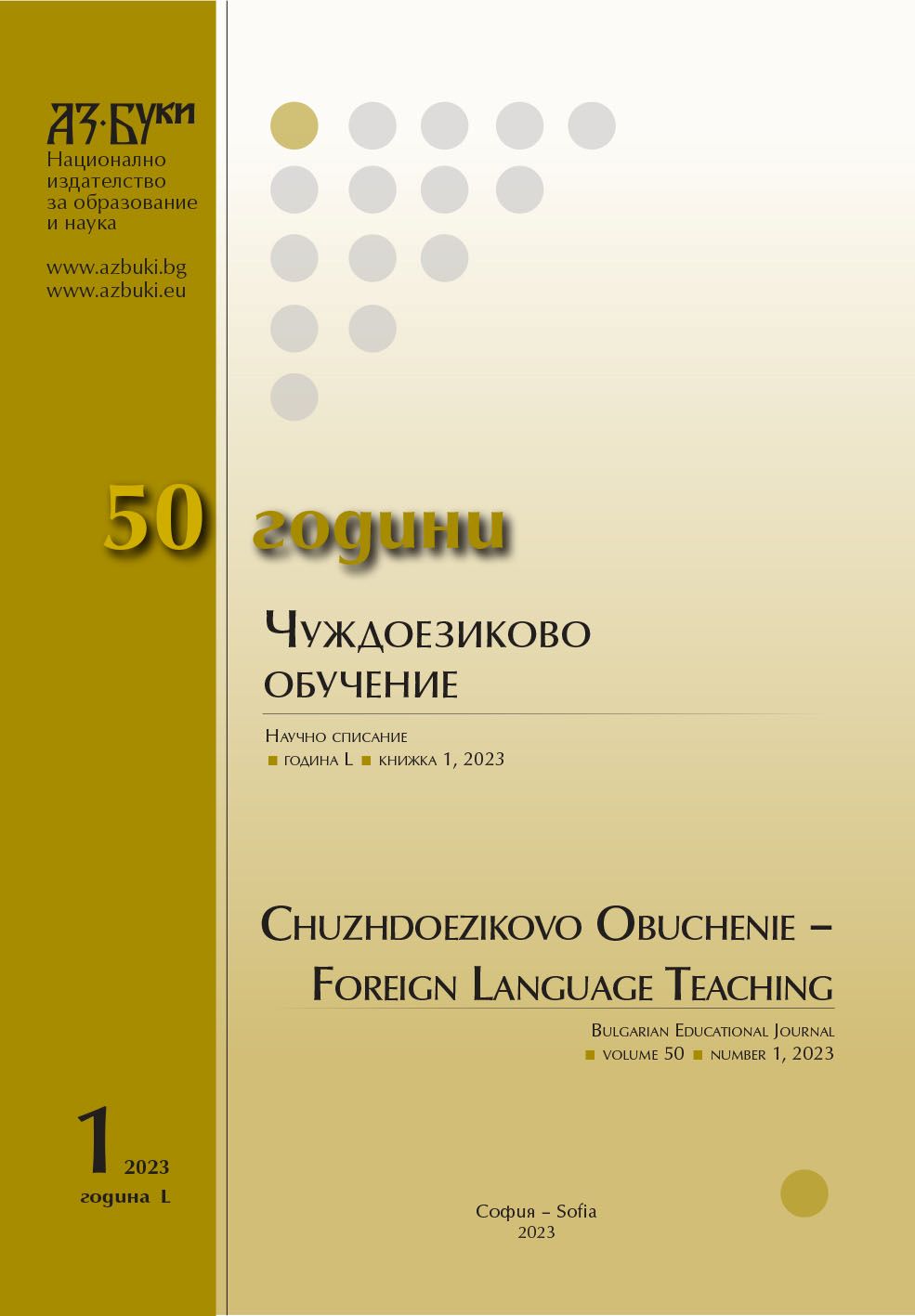
Regardless of the scientific evidence about the positive influence of music on language development, the presence of music elements in the process of teaching English as a foreign language is still insufficient. Some methodological ideas are presented in the paper, after the thorough review and interpretation of literary sources. These ideas can be applied both to the exercises from the textbooks and to the additional learning content selected by the teachers according to the language level and needs of the students. The possibilities for integrating music elements into the process of teaching English as a foreign language are divided into two groups: 1) activities which integrate instrumental music and 2) activities which integrate vocal music and rhythmic elements. Presented methodological ideas do not exhaust all available ones but could become starting point for developing new solutions and to help pedagogical specialists to see the positive influence of the music on language development.
More...
The aim of this article is to present the contemporary perspectives of the methodology of language teaching through the prism of didactic exercises for teaching and learning ichthyological Spanish. It outlines the main criteria for the selection and classification of didactic tasks with regard to response options, mode of execution, achievement of objectives, duration, etc. An example exercise illustrating and describing the theoretical concepts described is presented and analysed in detail.
More...
Bulgarian language through Turkish mediation. The Ottoman Turkish language contains a significant layer of Arabic and Persian vocabulary, which hasalso entered the Bulgarian language. Some of the Arabic vocabulary was inherited from Aramaic, the language of Jesus Christ, and from the Akkadian language of Babylon and Assyria, and Persian - from the language of the Zend Avesta. As a result, Bulgarian culinary terminology preserves an ancient heritage.
More...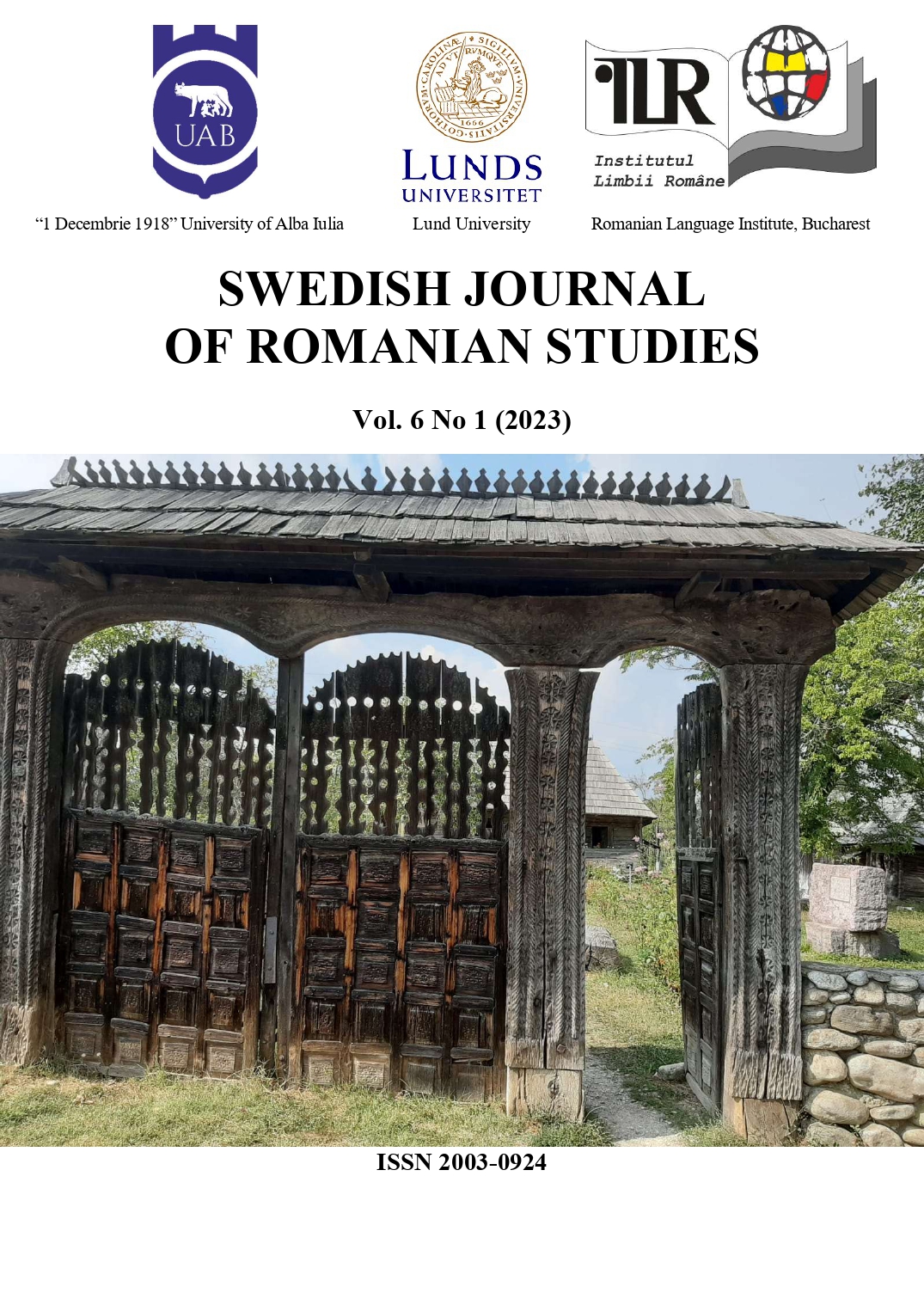
The objective of the present study is to evaluate the communication needs of the parents of children with cancer from the perspective of the semantic values of the morphological units used and integrated into sentence structures or sentence segments (with response status to open questions) and from the perspective of the factual analysis of the percentages of closed questions. We believe that the results we have reached, processed with interdisciplinary tools of psycholinguistics, morphology, syntax and semantics of the Romanian language and psychological analysis, can provide data that can contribute to the identification of the best strategies for ensuring emotional well-being and increasing the quality of life of families where there is a child with cancer.
More...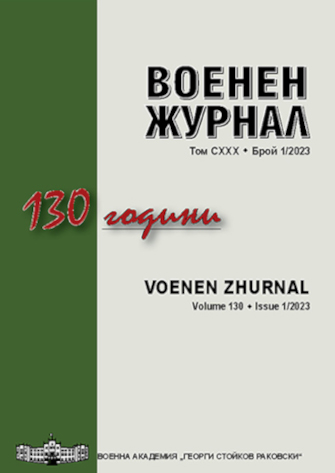
The article contains an analysis of the normative, communicative and ethical aspects of the culture of speech, which make up the modern concept of the phenomenon under consideration. According to the author’s definition, the culture of speech, along with the culture of reading, the culture of working with text, information culture, constitutes the structure of the individual’s language culture. Considering the problem of classifying the styles of the English language, the author considers it appropriate to derive the constructs ‘language of fiction’ and ‘colloquial speech’ from the list of styles of the English language, identifying them as functional varieties of the language. In addition, taking into account the realities of modern society, the author proposes to expand the range of functions of speech communication through the function of forming one’s own image, the educational function, the function of adaptation to the conditions of speech interaction in the virtual world, etc.
More...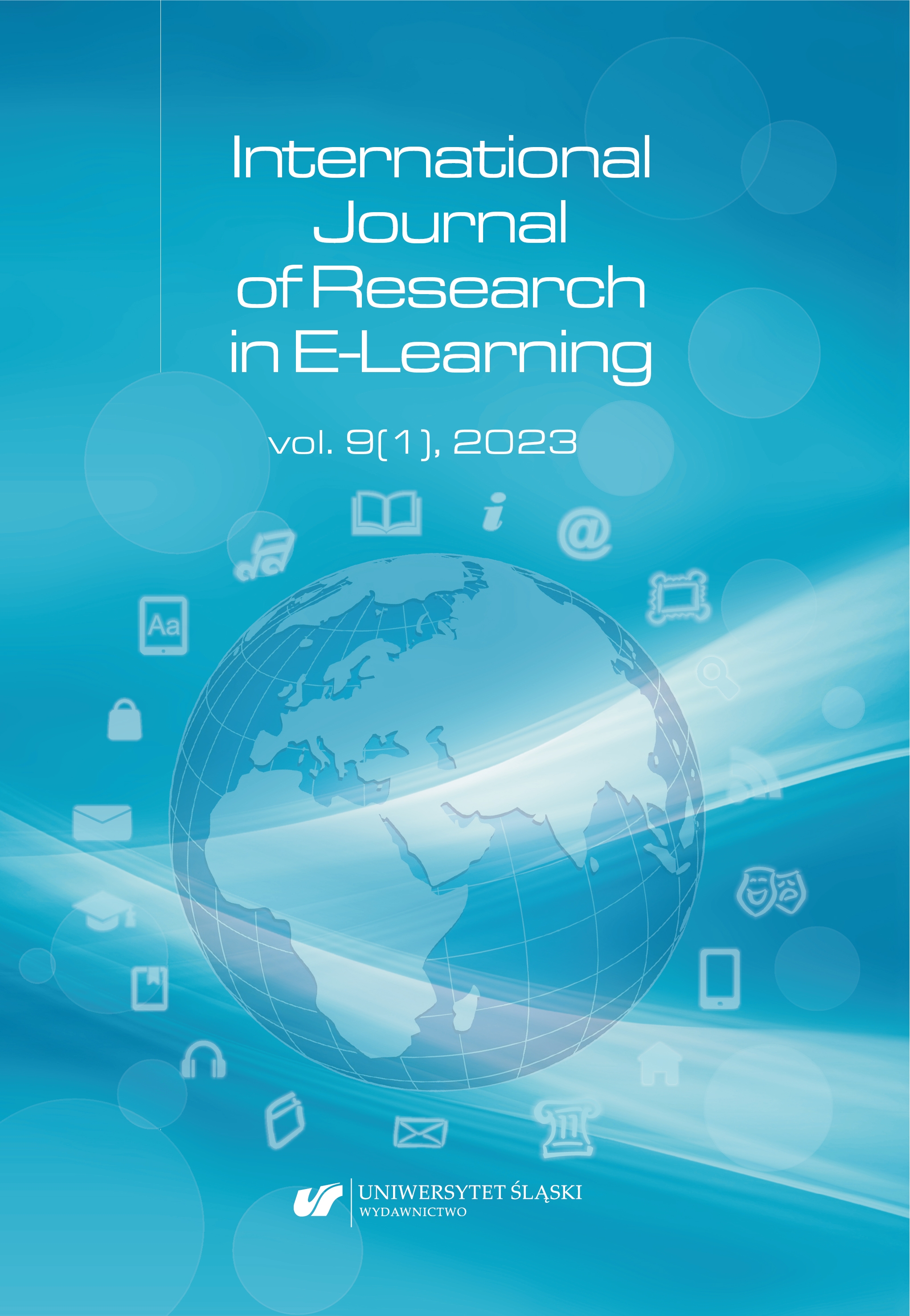
This article tested a widespread belief that by working in groups distance education students achieve cognitive goals of learning, and develop their social competencies and skills. The subject of the study was the achievements of 655 bachelor and master degree students enrolled in 22 on-campus and blended learning units offered within 2 university courses, full-time and part-time, during and after the COVID-19 pandemic, i.e. in the academic years 2020/2021 and 2021/2022. An instrumental case study was carried out: the grades students obtained for individual work were compared with grades obtained for work done in pairs and groups of threes within the same courses. It was found that a statistically significant difference did not exist. But the highest grades (on average 83.81) were obtained by students who had worked individually, and the lowest (81.64%) by those who had worked in groups of three. The highest grades were obtained by the final-year students. They showed an understanding of the assessment criteria and the ability to follow such. Also, they wanted to pass on the first attempt in order to have time to prepare for the final examination. International students were reluctant to work in groups. They focused on achieving good grades and preparing for the thesis due to the time limits of student visas and the unrest caused by the war in Ukraine. First-year students who had no experience in adhering to the assessment criteria and problems with communicating due to isolation caused by the pandemic obtained the lowest grades.
More...
Universities can offer their master’s students who want to improve their language skills different learning environments. They can range from traditional classes to online programmes equivalent to an on-campus experience or reaching beyond it. Learning technical English through a curriculum that is inspiring and stimulating due to authentic materials used in a gamified setting can result in positive learning outcomes and increased satisfaction levels among lecturers and students. The former can find new challenges helping prevent burnout, the latter have the chance to develop hard and soft skills, including analytical, reflective and critical thinking, through context-specific language. Interactions structured around online activities which involve searching for information in authentic resources and completing activities that allow for progress to the next level can effectively prepare students for challenges they will encounter in their professional life. They can also capture imagination and unlock the creative potential of the educators involved in their development and of participants bored with school routine and textbooks. Thus, a gamified language course for specific purposes can become a highly motivating environment, in which young people develop their creativity, language proficiency and knowledge of technological advances not only in the fields of their interest; they are also exposed to new learning practices due to the application of game-design elements. The ideas presented above will be supported by students’ opinions and attitudes expressed during a pilot Moodle course in a gamified format conducted at Gdansk University of Technology in the summer semester of 2021/2022.
More...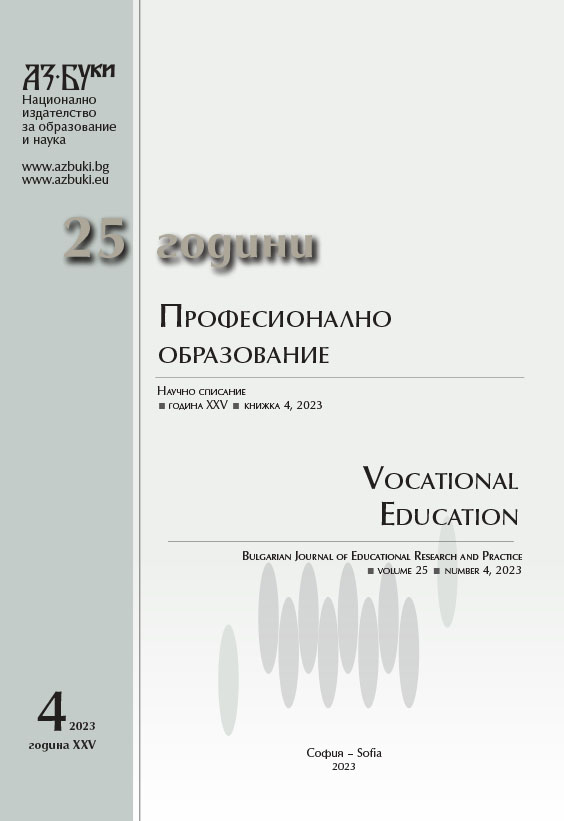
The paper is part of an empirical study of Anglophone travel books describing Bulgaria. Its subject are the images through which the topic of ‘Bulgaria’ is communicated to the British public at the beginning of 20th century. These images are found to be informed by the symbols of the dominant discourse iconography as well as by innovative approaches to the representational paradigm. The paper applies the historical discourse approach to the process of uncovering the link between the representations of Bulgaria in English travel writing and the models of identification deriving from the socio-political reality of the division between the colonial Great Powers and the marginal newly-liberated states. The constructivist focus on the continuous mutually constitutive interaction between social reality and communication is pivotal in the study. The travelogue is interpreted as a communicative act in the course of which the subject and the object position themselves and assume or attribute to each other identities matching their social roles. The images of „gentlemen“, „peasants“, „warriors“, unlock models of identification that either reaffirm the status quo in the British-Bulgarian relations or advocate a closer engagement of Britain with Bulgaria.
More...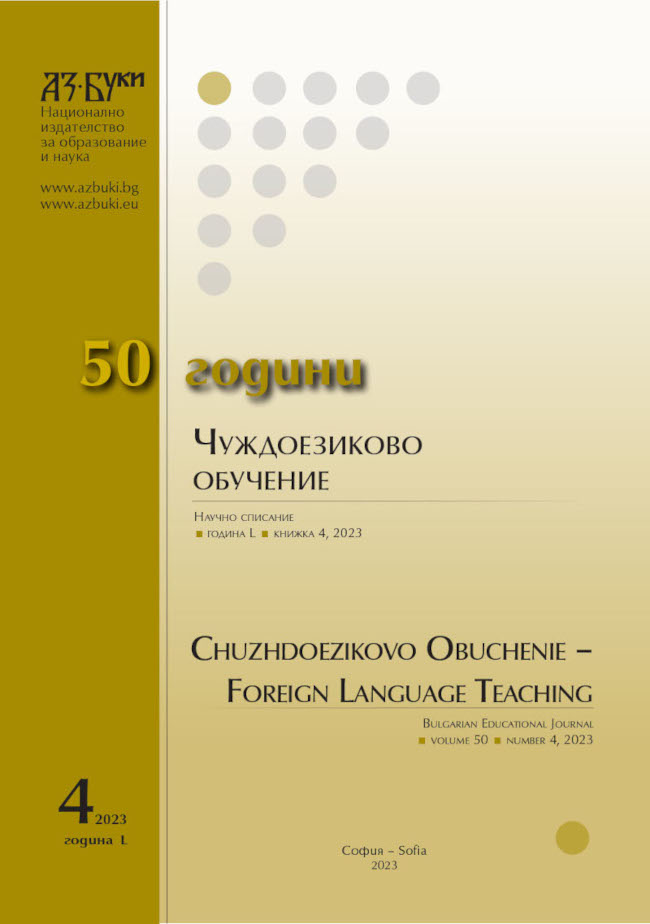
A brief summary is made of prof. Yanakiev's views on the creation of indexes for different types of scientific publications, changes are noted in these views due to the development of electronics and computer-based text processing, and a comparison is provided with Prof. Yanakiev's practice in the book “Stylistics and language learning”.
More...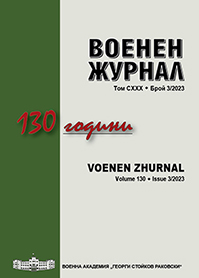
The report examines issues related to sectarianism in Pakistan arising from the unequal position of the minority Shia groups in the society. The main reasons are examined, as well as the activities of local terrorist groups and organizations like the Movement of the Pakistani Taliban and the so-called Local Taliban to destabilize the security environment and create ethnic ten-sion. Some of the measures taken by the Pakistani military and state leadership to regulate problems and create religious harmony and social security are also analyzed.
More...